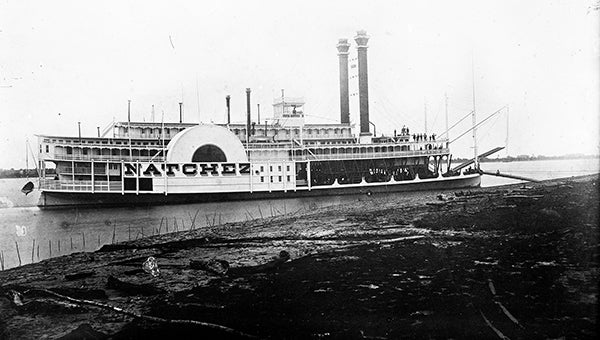Steamboats meant so much to the growth of Vicksburg
Published 11:40 am Tuesday, November 3, 2015
Since the early 19th century, steamboats have been regular fixtures at the Vicksburg waterfront.
Today, tourists arrive regularly on replica paddle wheelers in comfort and luxury, and while most people picture the steamer of long ago as a slow, easy-paced place to play cards and relax while traveling the river, it couldn’t be further from the truth.
Cabins were often cramped for all but the most wealthy passengers and crews lived in sweltering conditions near massive boilers. Most steamboats had a crew of about 50 men, though some of the larger boats required hundreds for operation.
Before the U.S. 80 bridge opened in 1930, the only way to cross the river was via steam powered ferry. Even trains were loaded onto ferryboats to cross the Mighty Mississippi between Vicksburg and De Soto Point, La.
Some boats, however, were particularly glamorous and speedy. Among these were a series of boats named “Natchez,” owned by famed river pilot Thomas P. Leathers. Various incarnations of the “Natchez” made thousands of trips to Vicksburg, but two hold particular importance. In 1861, newly elected Confederate President Jefferson Davis boarded the “Natchez” at Vicksburg to leave for Mobile where he would take control of the southern government. Davis also made his final trip to Vicksburg aboard the Natchez before his death in 1899.
The Belle of the Bends also made a historic stop in Vicksburg in 1907 bringing U.S. President Theodore Roosevelt.
Steamboats were an incredibly dangerous form of travel and transportation. The boats frequently crashed and sunk dumping cargo into the river or at worst violently exploded.
Overcrowding was also a major issue in a time before safety regulations.
The SS Sultana left Vicksburg loaded with an estimated 2,100 people April 24, 1865, though it only had a legal capacity of 376. The boiler exploded three days later outside of Memphis, killing all but about 500 people on board.






